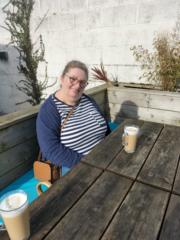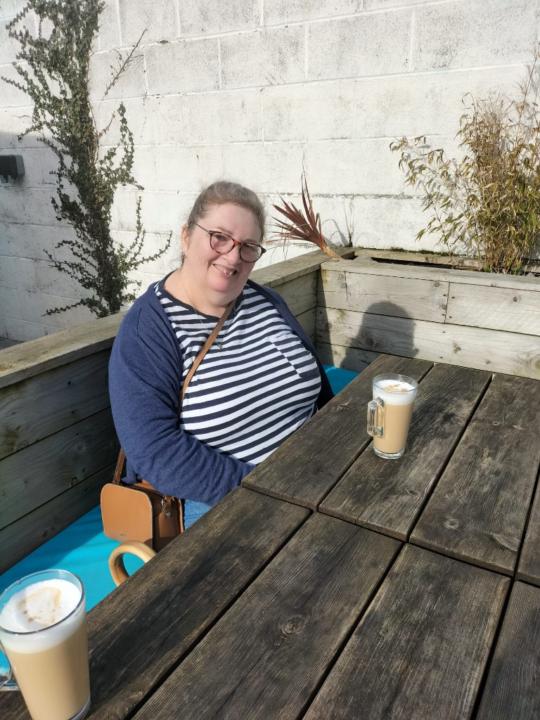Activity
Mon
Wed
Fri
Sun
Mar
Apr
May
Jun
Jul
Aug
Sep
Oct
Nov
Dec
Jan
Feb
What is this?
Less
More
Memberships
Stroke-Proof
46 members • Free
26 contributions to Stroke-Proof
Stroke-Proof Weekly Challenge (Week 3)
Hello everyone! A new week is a fresh opportunity to invest in your long-term stroke prevention. As in previous weeks, please choose one challenge to focus on from tomorrow. 👉 This week’s options: 1. DRINK CHALLENGE 💧 Replace at least one sugary drink per day with a healthier alternative. Easy ideas: - Infuse sparkling or still water with lemon, berries, cucumber, or mint - Try a different fruity herbal tea each day Why it works: Sugary drinks spike blood sugar, add empty calories, and increase the risk of type 2 diabetes and heart disease. Swapping them for water or herbal tea reduces sugar intake, supports blood pressure, and keeps your brain and body hydrated. 2. SLEEP CHALLENGE 🛌 Choose a consistent bedtime and wake-up time, sticking to it within a 30-minute window each day (yes, even on weekends!). Tips for success: - Dim screens 30 minutes before bed - Keep your bedroom cool, dark, and quiet - Try a calming pre-bed routine: reading, gentle stretching, or slow breathing Why it works: Regular sleep is one of the strongest lifestyle protections against stroke. It lowers the risk of stroke, heart attack, and heart failure; reduces depression and anxiety; improves metabolic health; helps prevent obesity and type 2 diabetes; and boosts memory. All essential for brain and heart health. 3. SNACK CHALLENGE 🥗 Swap at least one processed snack per day (crisps, sweets, packaged snacks) for a whole-food alternative. Easy swaps: - A handful of nuts or seeds - Fresh fruit - Vegetable sticks with hummus or Greek yogurt - Dark chocolate - Berries - Roasted chickpeas Why it works: Ultra-processed foods are often high in salt, sugar, additives, and unhealthy fats. Whole foods provide steadier energy, support vascular health, stabilize blood sugar, improve cholesterol levels, maintain a healthy weight, and reduce inflammation. All critical for stroke prevention. ✨ Your stroke-proof move: Pick one challenge to focus on starting tomorrow, decide how you’ll stick to it, and share your plan with the group.
Botox
A question please. Does anyone else have regular botox injections in their affected side, to help combat nerve pain and spasticity? I've been having them for 2 years now every 4 months or so, and do find they help. Just wondered whetherothers have them and find them helpful. Your colleague Dr Colin Pinder has a clinic at clatterbridge, so I see him there. Hope everyone has had a good start to the year and is doing as well as possible. Happy weekend all and keep smiling Andy
Stroke-Proof Weekly Challenge (Week 2)
Happy Sunday! 🙌Hope you’ve had a great week and made progress reducing your stroke risk. This week’s format is the same: 3 simple ways to reduce stroke risk. 👉 Pick ONE of the 3 to focus on this week, start tomorrow (Monday), and post in the group what you’re choosing — accountability = power 1) 🏃♂️ ACTIVE CHALLENGE: Add cardio (just a little more) Cardio fitness is one of the strongest predictors of long-term brain and heart health. ✅ This week: Do a bit more cardio exercise than your norm. If your normal exercise is very little it could just be going out for a couple of 20 minutes walks. If your very fit it could be 4 high intensity sessions. Tailor to suit your current level. Examples: - brisk walk (fast enough to raise breathing) - jogging / cycling / swimming - treadmill incline walk - skipping / rowing - Goal: get mildly out of breath (but still able to speak in short sentences). 2) 🥕 DIET CHALLENGE: Crudités before meals This is a brilliant “hack” that helps blood sugar control and appetite without dieting misery. ✅ This week:Eat a bowl of crudités (chopped up veggies) BEFORE one main meal per day (lunch or dinner) Options: - carrots, cucumber, peppers, celery, cherry tomatoes - add hummus / tzatziki / cottage cheese if you want Why it works: fibre before meals makes you feel fuller and also slows glucose absorbtion giving you better blood sugar control. 3) 🩺 MEDICAL CHALLENGE: Check your numbers Most people don’t realise their cholesterol or blood sugar has drifted until it causes damage. ✅ This week:Check when you last had: - Cholesterol (including LDL / non-HDL) - HbA1c (average blood sugar) - Then ask yourself: - Was it within target? - Has it been more than 12 months, 3 months if it was high or you changed your treatment? - Do I actually know my numbers? - If you’re unsure: book a blood test / GP review. See the info in the classroom for more info on your blood targets or just ask me. 🔥 Your mission this week...
Temperature regulation / nightmares vivid dreams
Evening all 👍 Does anyone else struggle with temperature regulation,mainly of a night but also in the day. I often wake in the small hours absolutely drenched with sweat and am also prone to hot flushes at random points in the day which after feeling excessively warm ends with me feeling cold before returning to normal. Last time I checked I was a man and am not perimenopausal like my wife who suggested I may be having empathy symptoms. These symptoms have been occurring since I first had my stroke and I can often confuse this with bed wetting at times ( which is another bloody symptom 😂). Be interested to know also if anyone else has really vivid dreams and nightmares since there stroke? I had really bad delerium after my open heart surgery/ stroke but this has carried on almost two years later,but thankfully only during sleep! I no longer believe Vladimir Putin has a spy with a dirty bomb trying to kill me nor have I seen it spoken to my imaginary friend little Eddie for quite some time 😂.
Weekly Lifestyle Tips – Small Steps for Stroke Prevention
Hello everyone , Our new challenge starts tomorrow! You don’t need to change everything at once. Pick one simple habit to focus on. At the end of the week, take a moment to reflect on how it went and how it felt. Even tiny progress is worth celebrating ! If you feel comfortable, please feel free to share which habit you chose, how you planned to stick with it, and how it went by the end of the week . Your story might inspire someone else to take a small step too ! This week’s options: 💓 Know your numbers: Check your blood pressure on 5 days this week and calculate your average. Seeing your numbers can help you spot patterns and keep your heart and brain healthy. 🚶 Move after meals: Take a 5–10 minute walk after a meal each day. Breakfast, lunch, or dinner, whatever works best for you. Even a short walk helps your blood sugar, circulation, and mood. 🥦 Eat more vegetables: Add an extra portion of vegetables at your meals. Fresh, pre-chopped, or frozen all count, any way that works for you is great. Reflection: How did it feel to practise this habit this week? What worked well, and what was challenging?
1-10 of 26
@ruth-harrison-6109
Hi . My name is Ruth Harrison and I had a stroke aged 3 I following retirement I set up a stroke support group called moving on warrington.we
Active 4h ago
Joined Sep 19, 2025





